Associative learning Math Worksheets for Ages 6-8
5 filtered results
-
From - To
Unlock the power of numbers with our Associative Learning Math Worksheets for Ages 6-8! Tailored specifically for young learners, these worksheets foster a deep understanding of mathematical associations, making complex concepts easier to grasp. Through engaging activities, children will explore relationships between numbers, enhance their problem-solving skills, and develop a solid foundation for future math challenges. Ideal for classroom use or at-home practice, our worksheets cater to various learning styles and encourage critical thinking. Discover how multiplication, addition, and grouping can be fun and interactive! Empower your child's mathematical journey today with our carefully crafted worksheets!
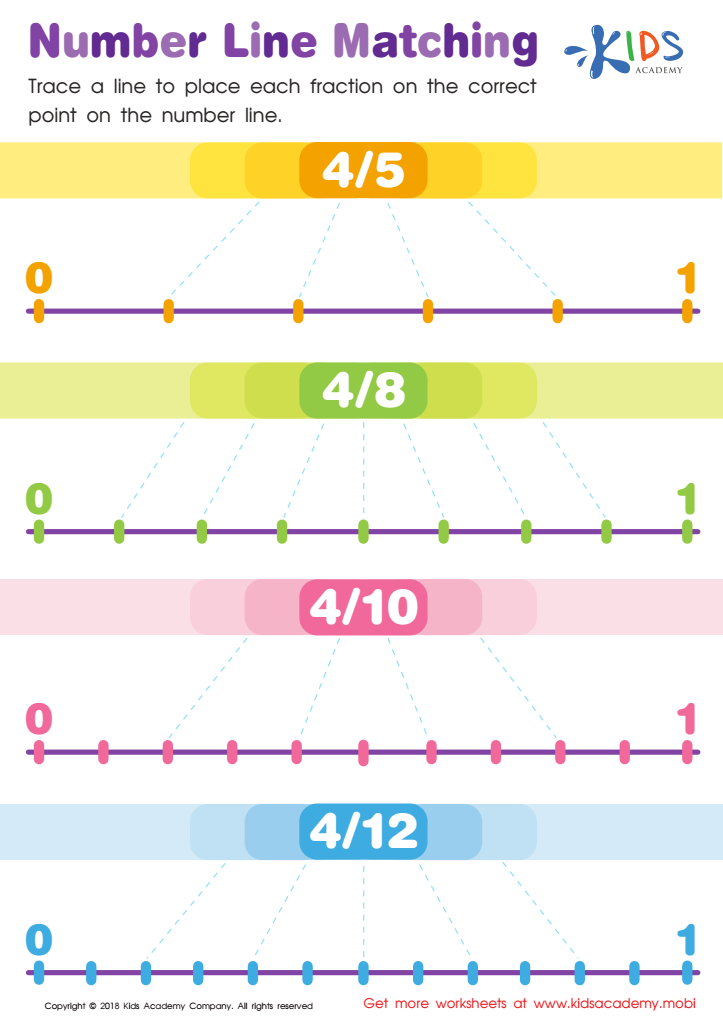

Number Line Matching Worksheet
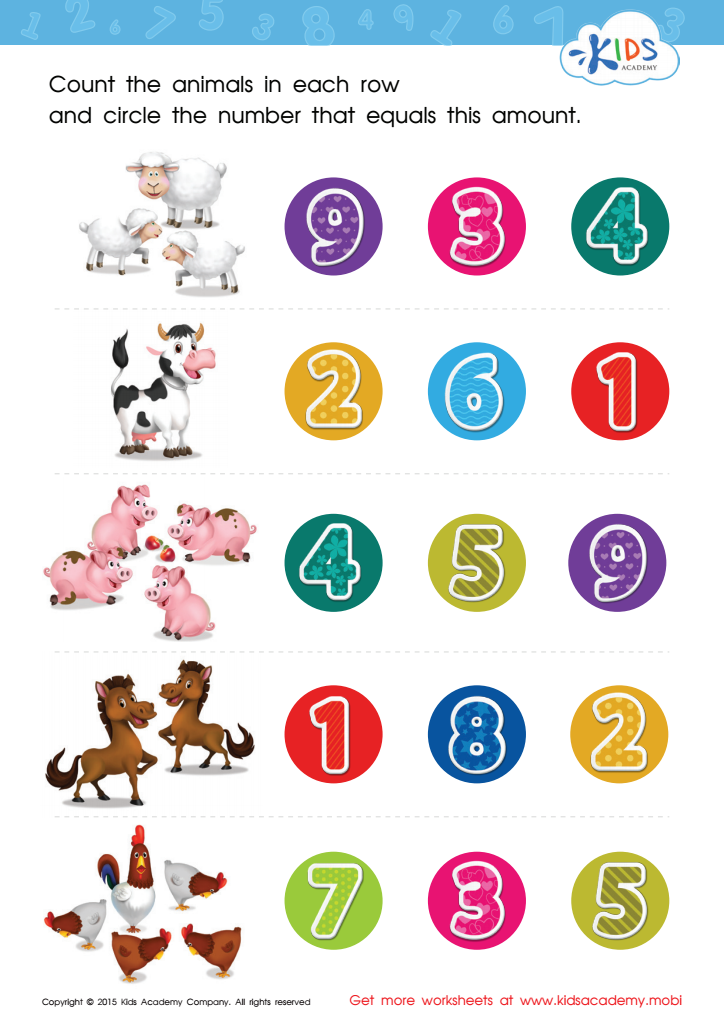

Count and Match 1 – 5 Math Worksheet
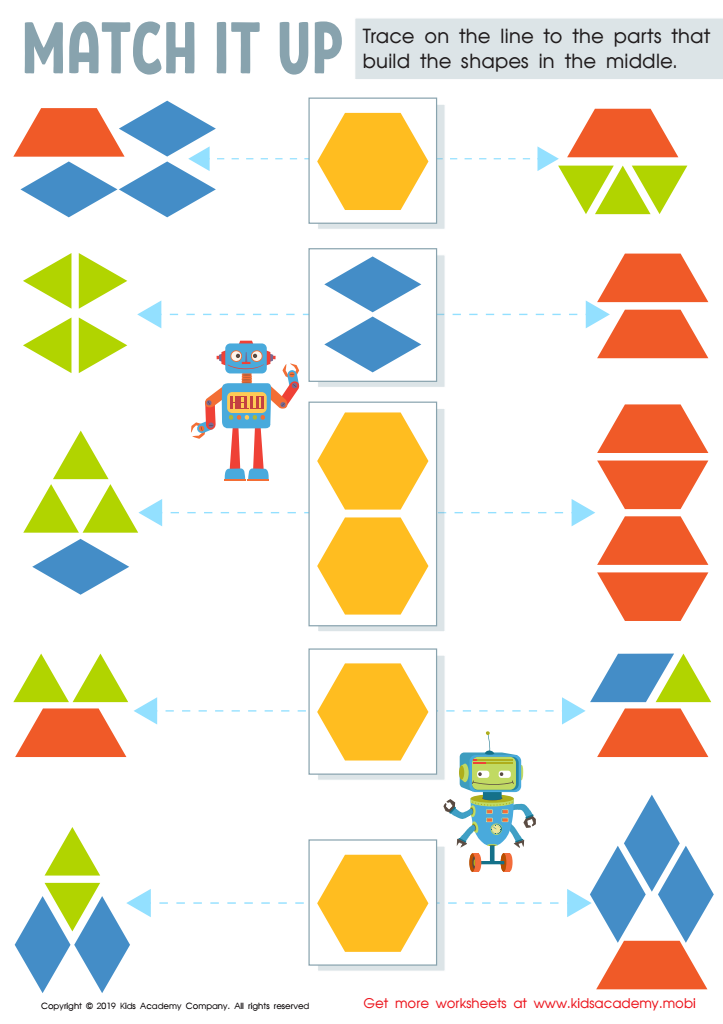

Match It up Worksheet
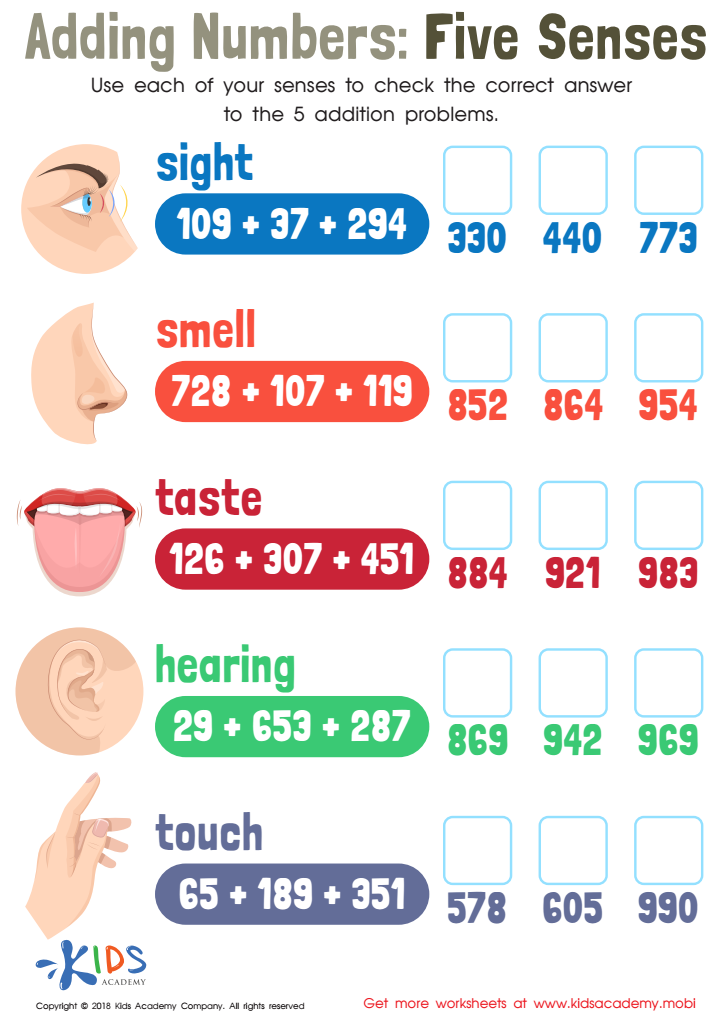

Adding Numbers: Five Senses Worksheet
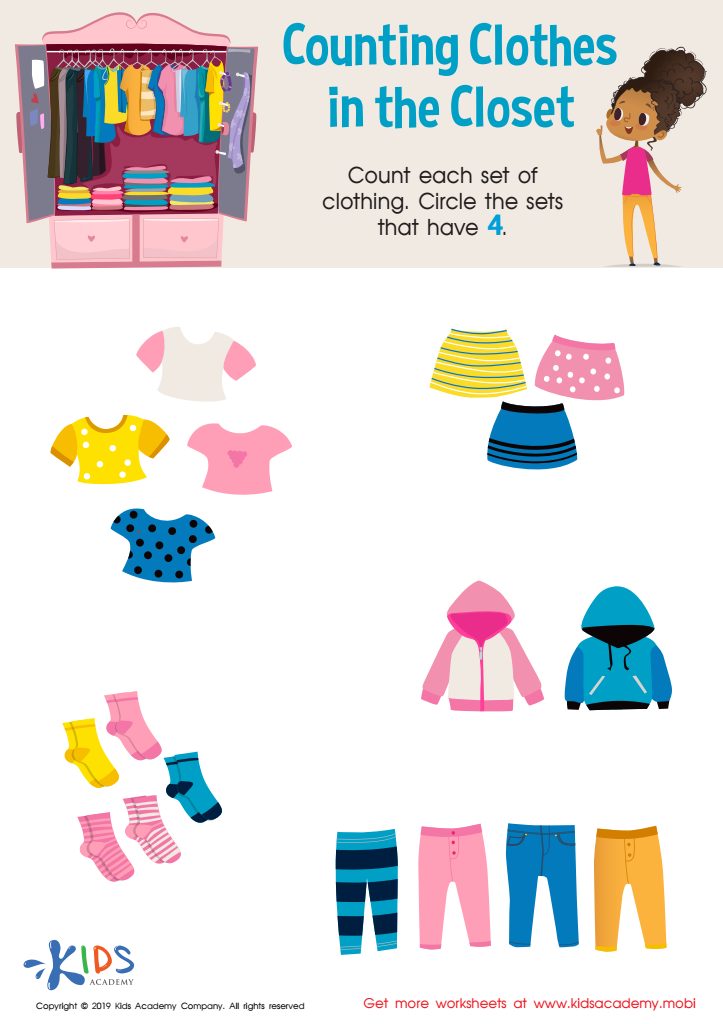

Counting Clothes Worksheet
Associative learning in mathematics is crucial for children aged 6-8 as it lays the foundational skills necessary for advanced math concepts. During this stage, children develop the ability to link numbers and operations, enhancing their understanding of relationships between numbers. This connection promotes a deeper comprehension of mathematical operations, making it easier for children to grasp more complex ideas later on.
Parents and teachers should care about associative learning because it fosters critical thinking and problem-solving skills. By encouraging children to see how different mathematical concepts relate, they not only develop numeracy skills but also learn to approach problems from multiple angles. This skill is not just essential in mathematics but also invaluable in everyday life, empowering children to make decisions and analyze situations critically.
Additionally, nurturing associative learning supports confidence in young learners. When children successfully solve problems by understanding connections, they build positive experiences associated with math, combating math anxiety. Engaging parents and teachers in promoting these principles can create a supportive learning environment, encouraging children to explore and enjoy mathematics. Ultimately, focusing on associative learning cultivates a solid groundwork for lifelong mathematical understanding, promoting success in school and beyond.
 Assign to My Students
Assign to My Students





















